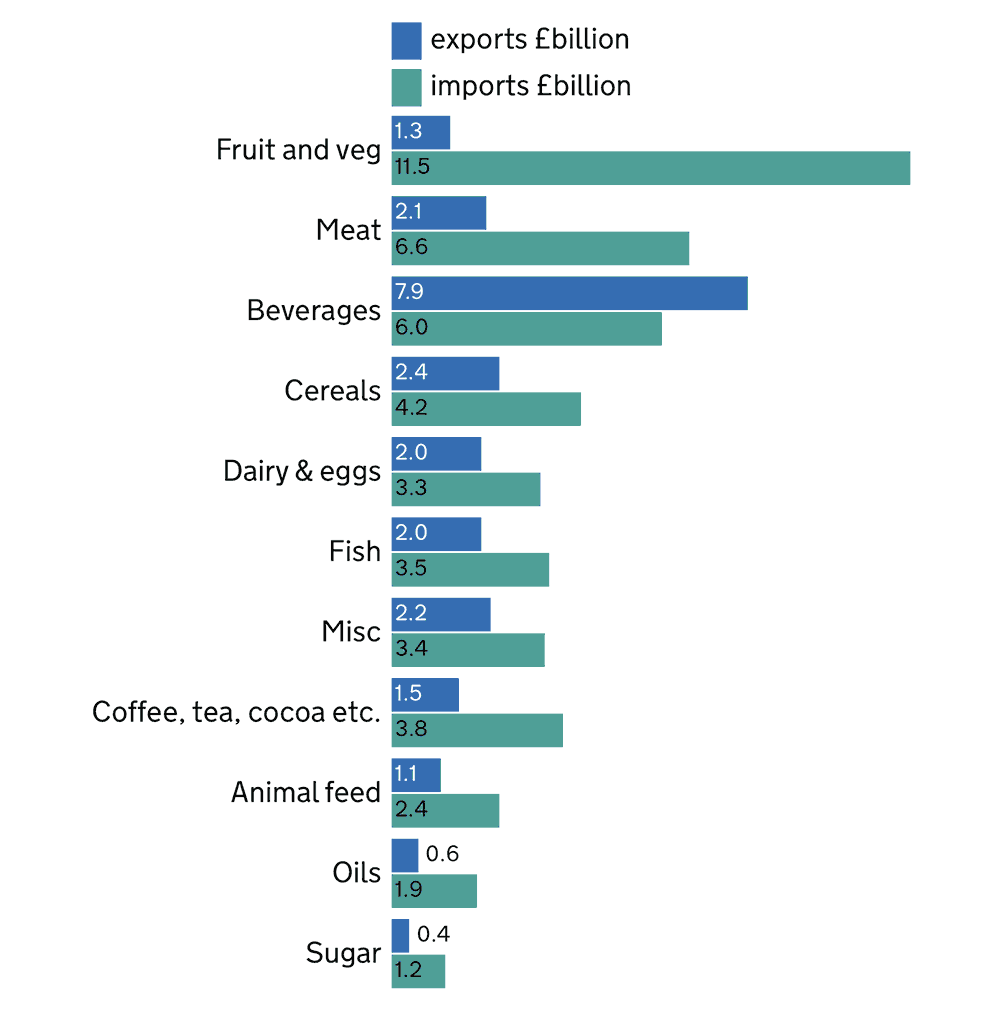Our Food Security
The UK imports 47% of the food we consume which gives us the vast choice of cheaply available food we’ve become accustomed to (60% of this comes from the EU). But this has also encouraged over consumption and an increase in the amount of food we waste.
The integrity of our food system is being tested on numerous fronts from nutrition and food safety to environmental and animal welfare. A burgeoning global population, increasingly complex food supply chains and growing food fraud all present challenges to our agricultural and food production systems.
UK exports vs imports of different food groups in 2019.

Source: Food Statistics in your pocket: Global and UK supply (Defra)
There is a growing number of scientists, ecologists and nutritionists who are looking at how to mitigate the problems created by our modern food supply needs.
One of those groups is the Institute for Global Food Security (IFGS) which actively explores new ways of enhancing agricultural outputs without compromising ecological stability. Their research ranges from reducing livestock methane emissions and novel ways of ‘soaking up’ ammonia in farmyards, to incorporating new technologies such as smartphones to empower farmers and vets to monitor and control disease and check soil health while on-site.
Their aim is to develop a range of paradigm shifts in agricultural practices to enhance profitability and sustainability without compromising biodiversity and ecological stability.
UK food production
It makes sense to trade with other nations that produce the things we can’t here in the UK. Indeed, our home-grown British meat which is produced to some of the World’s highest standards with the lowest environmental impacts is something that other countries want to buy from us; they can import our high standards.
So, it’s important that we find ways to preserve our long tradition of livestock farming on these shores so we can continue to feed both ourselves and consumers further afield with food we’re confident has been produced to the highest standards
We shouldn’t take it for granted or throw it away carelessly for a misguided idea to replace it with cheaper imports, more highly processed alternatives or crops that don’t suit the land.
We must preserve our domestic food production.
